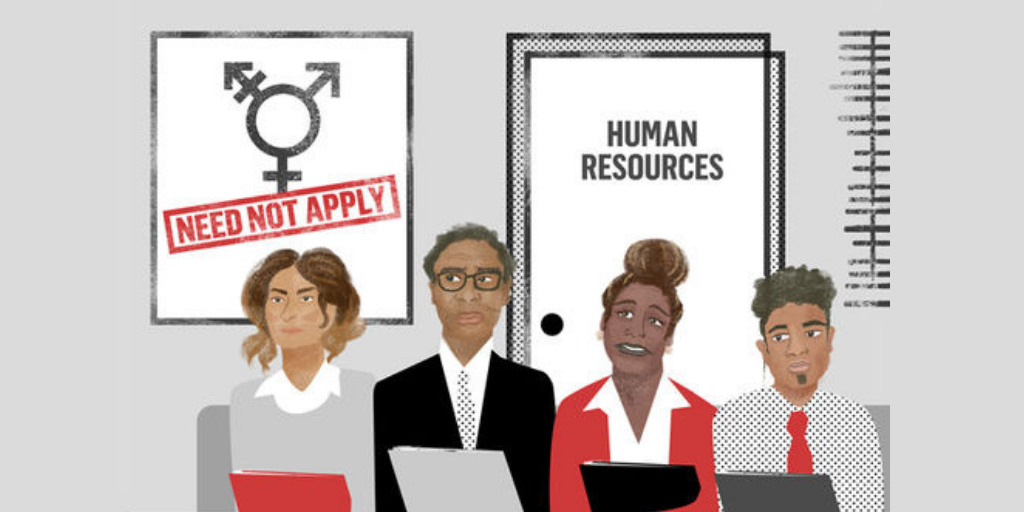Fifth Circuit Reinforces Intolerance of LGBTQ Workers With Title VII Outlier
David Nahmias, Law Fellow - The Impact Fund
The Fifth Circuit issued a disappointing decision yesterday in Wittmer v. Phillips 66 Co., No. 18-20251, 2019 WL 458405 (5th Cir. 2019), a gender identity discrimination case for a transgender job applicant. While the case was about gender identity—and not sexual orientation—the court in dicta reaffirmed the vitality of its forty year old precedent in Blum v. Gulf Oil Corp., 597 F.2d 936 (5th Cir. 1979), which held that sexual orientation is not protected under Title VII. The court ultimately ruled against the plaintiff on other grounds.
By way of background, protections under Title VII for LGBTQ workers have evolved differently but based on similar legal underpinnings. As the Impact Fund has written previously, multiple federal circuits have ruled that prohibitions against sex discrimination in our civil rights laws encompass transgender status. Under the different theories that courts have relied on, bias against a transgender worker is grounded in unlawful sex stereotyping based on how one’s gender is identified or expressed, as well as being discrimination because of sex per se. Separately, just two courts of appeals have held that Title VII protects sexual orientation because it amounts to sex stereotyping, per se sex, and associational discrimination. The related yet parallel tracks for sexual orientation and gender identity protections has resulted in more widespread rights for transgender workers than lesbian, gay, and bisexual workers. Now both questions are the subject of three pending cert petitions before the Supreme Court.
Notably, the Fifth Circuit has lagged in considering the rights of LGBTQ workers under Title VII. While Blum was a sexual orientation case, not gender identity, many civil rights advocates groups saw it as a decision in need of review. Wittmer offered that opportunity. The plaintiff was a transgender woman who was applying for an engineer position at the oil company Phillips 66. She was offered the job contingent on passing certain background checks. Those backgrounds checks revealed that Wittmer’s current employer had actually just terminated her, but she did not reveal this information during her interviews with Phillips 66. Wittmer “acknowledged the discrepancy” and sent the Phillips 66 HR manager her termination letter. The company decided to rescind its job offer. Shortly thereafter, Wittmer accused them of transgender discrimination, but the HR manager responded that the company was unaware of her transgender status, and that it did not affect their decision. A year later, Wittmer sued Phillips 66 in the Southern District of Texas under Title VII for discrimination on the basis of transgender status.
Bias against a transgender worker is grounded in unlawful sex stereotyping based on how one’s gender is identified or expressed, as well as being discrimination because of sex per se.
The district court granted summary judgment to Phillips because Wittmer failed to make her prima facie case of discrimination, nor could she prove that Phillips’s legitimate non-discriminatory reason for rescinding its job offer—her failure to disclose her termination—was pretext. The panel affirmed on both bases, finding that “Wittmer did not present evidence that any non-transgender applicants were treated better,” and that her “misrepresentations” about her relationship with her previous employer was a legitimate non-discriminatory motive.
The Wittmer court observed that the employer itself took no position on whether Title VII protects transgender employees. Meanwhile, the EEOC and several amici (led by the National Center for Lesbian Rights) sought to have the Fifth Circuit answer that question—even though, as the EEOC said in its amicus brief, “Blum. . . is inapposite here.” Nonetheless, the court bypassed the matter and resorted to the standard McDonnell Douglas framework to reach its decision.
Two judges concurred in the decision. Judge Higginbotham said it was “wise” for the court not to reconsider Blum because “[n]either party, in the district court or this court, relied on or questioned Blum’s continued validity.” He is mostly right, although the district court in fact was persuaded by recent out-of-circuit cases and “assume[d] that Wittmer’s status as a transgender woman places her under the protections of Title VII.”
Judge Ho, who was recently appointed to the bench, went further, seeking to explain “why our precedent is also correct as a matter of faithful legal interpretation.” He described what he referred to as a “blindness” theory to sex proffered by LGBTQ rights advocates. According to Ho, the theory could result in prohibiting sex-specific restrooms, and he said that the matter, “affects every American who uses the restroom at any restaurant, buys clothes at any department store, or exercises in any gym.” He also sought to limit the application of sex stereotyping discrimination to LGBTQ employees. Judge Ho’s concurrence is longer than the opinion itself, and it makes a dangerous argument that should concern all civil rights advocates.
While Wittmer does not change the federal law protecting LGBTQ people, it stands as an outlier among many recent decisions that have found that discriminating against them in the workplace is “because of sex.” The Fifth Circuit covers Louisiana, Mississippi, and Texas, all states that lack statewide protections for LGBTQ workers, and LGBTQ people in the South face higher rates of prejudice and intolerance than other parts of the country. Wittmer makes the conflict among the states and federal circuits even stronger, where LGBTQ workers can be protected in one part of our country but not in another.





